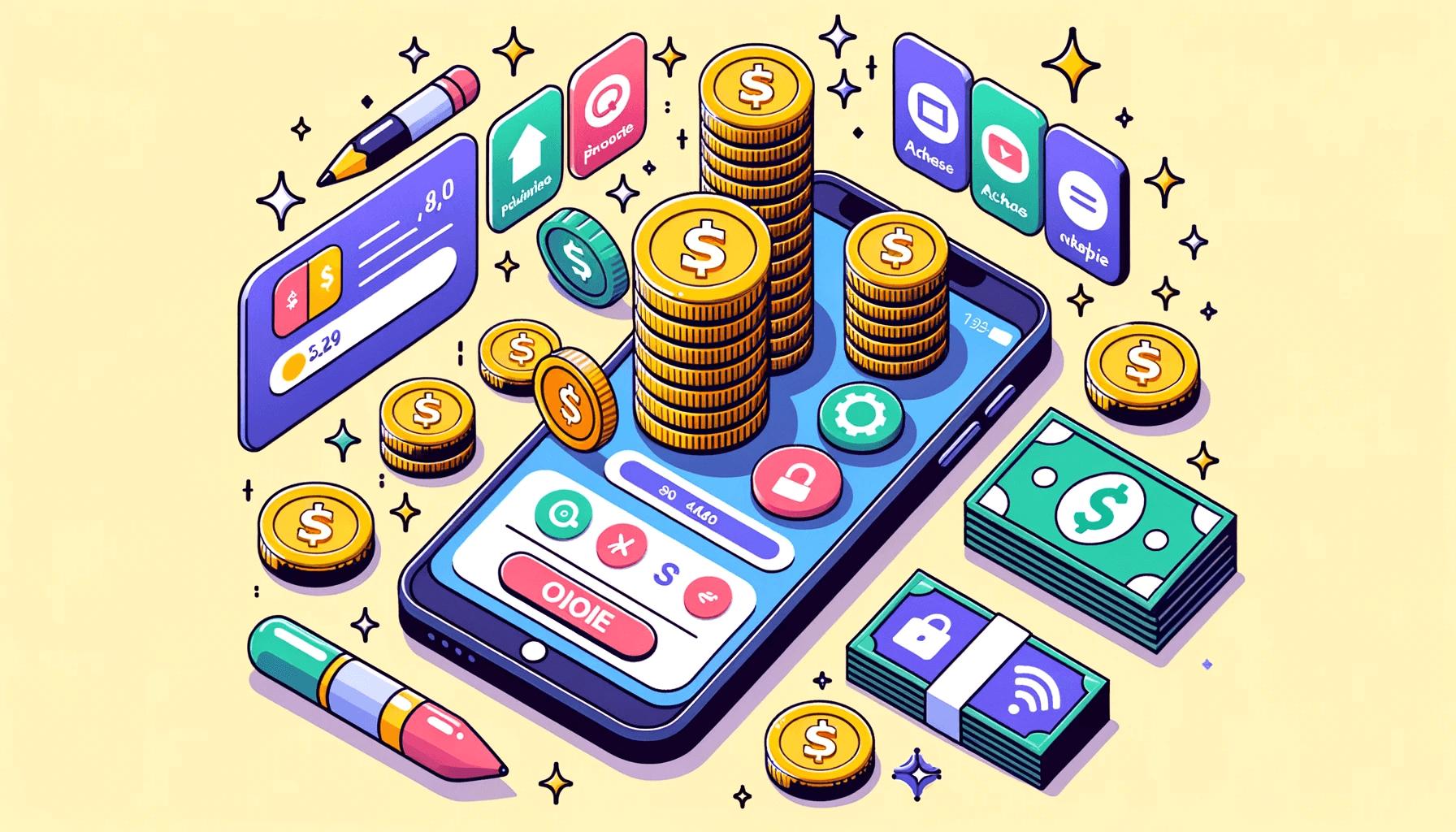We explore the different monetization strategies available to mobile app developers. By following the tips and methods we present, you'll be able to find effective ways to generate revenue with your app. After all, the success of a mobile application is based not only on its design and functionality, but also on its ability to generate profits. So let's dive into the various monetization techniques and discover how to maximize the potential of your mobile app.

Monetization strategies for mobile applications
When developing a mobile app, it's essential to find ways to monetize it to generate revenue. There are several monetization strategies you can use depending on your app and target audience. In this article, we'll explore different monetization methods for a mobile app, from in-app advertising to pay-per-purchase and brand partnerships.
Integrated advertising
Integrated advertising is one of the most commonly used monetization strategies in the mobile applications. It involves integrating ads into the app, whether in the form of banners, videos or interstitial ads. App developers can choose between different forms of ads and display them at key moments in the user experience. However, it is important to ensure that the ads do not negatively affect the user experience, so as not to compromise user retention.
Payment on purchase
Pay-per-purchase is a monetization strategy in which the user pays a fixed amount to access the application or certain features. This approach is commonly used in game applications, where users can purchase the full game or unlock additional levels for a one-off payment. Pay-per-play offers developers a stable revenue stream, but it's important to offer quality content to entice users to spend their money.
Freemium model
The freemium model combines both free and paid features within the application. Users can download and use the app for free, but some advanced features require payment to unlock. This strategy enables developers to reach a wide audience and encourage users to upgrade to the paid version if they find value in the free app. It's important to carefully assess which features need to be paid for, and to make them attractive enough to encourage purchase.
Subscription
The subscription model is an increasingly popular monetization strategy for mobile applications. Instead of selling a single license, developers can offer monthly, annual or even weekly subscriptions to users. This approach generates recurring revenues, but also requires the regular delivery of quality content or features to justify the subscription fee. It's important to offer several subscription levels to suit different user needs.
Purchasing in the application
In-app purchases are a monetization strategy commonly used in gaming apps, where users can purchase virtual items, upgrades or bonuses to progress in the game. Developers can offer a range of in-app purchases, from small, low-cost items to larger purchases. It's crucial to balance in-app purchases correctly so as not to give the impression that the game is "pay-to-win" and block access to content for users who don't want to spend money.
Sponsorship program
A referral program can be an excellent strategy for increasing the number of users of your application. By setting up a referral system, you enable your existing users to recommend your app to their friends or network, in exchange for a reward or benefit. This can be in the form of discounts, additional features or even free credits. A well-designed referral program can help your application grow by harnessing the power of word-of-mouth.
Third-party sponsorship
Third-party sponsorship is a monetization strategy in which you work in partnership with other companies, brands or services to promote their products or services within your app. This can take the form of advertising, collaborations or even exclusive partnerships. Third-party sponsorship can be a lucrative source of revenue, but it's essential to ensure that partnerships are relevant to your target audience and don't compromise the user experience.
Content monetization
If your application generates quality content, you can consider monetizing this content directly. This can take the form of creating a library of premium content accessible only to paying users, or setting up a system of on-demand articles or videos for a fee. Content monetization requires the provision of high-value content to entice users to pay for access.
Brand partnerships
If your app has a large and engaged user base, you might consider partnering with brands to promote their products or services. This can be done through sponsored ads or other forms of in-app promotion. Brand partnerships can be a significant source of revenue, but it's important to only promote brands or products that match the values of your app and your audience.
Payment for advanced features
Finally, you may want to consider offering advanced features of your application for an additional fee. This could include special features, advanced analytics or additional tools that offer added value to users. By offering advanced features for a fee, you can convert some free users into paying users, thereby increasing your revenues. It's important to evaluate carefully which features should be paid for, and to offer a good balance between free and paid features to encourage conversion.
In conclusion, there are many monetization strategies for a mobile app. Choosing the best strategy depends on your app, your target audience and your business objectives. It's important to try out different approaches and adjust your strategy according to user feedback and results. By using these strategies thoughtfully and offering quality content, you can generate revenue while providing a satisfying user experience.
You can contact us by email, and a project manager will get in touch with you!
